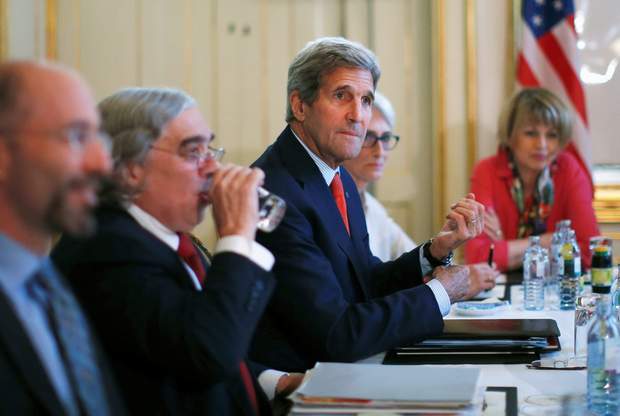Does more time promise a better product? This is the question that comes to mind as negotiators in Vienna navigate nuclear talks with Iran. After missing the initial June 30 deadline, talks were pushed to Tuesday, July 7. They have since been pushed beyond that extended deadline to Friday, July 10.
The United States and its allies want the Iran nuclear program to be as transparent as possible while President Hassan Rouhani maintains that Iran’s military secrets will not be divulged, putting the U.S. and its allies in a precarious position. Meanwhile, Ayatollah Ali Khamenei issued an ultimatum insisting that the harsh sanctions on Iran must first be lifted before any deal is reached. These sanctions include blocking the export of arms, banning transactions with Iranian banks, and preventing the import, purchase, and transport of crude oil and natural gas from Iran. These sanctions have taken an undeniable toll on Iran’s economy; agreeing to a transparent nuclear program would surely help the Iranian people.
Of course, even after Iran agrees to the nuclear deal a violation is likely. Just last week, for example, the International Atomic Energy Agency announced that Iran had not followed through with its commitment to reduce stockpiles of enriched uranium gas. Developments like these only make Iran vulnerable to further sanctions.
But the White House is in deep water because Iran can be both an ally and an enemy to America. Secretary of State John Kerry has asserted that Iran has a role to play in defeating ISIS, and there’s no doubt that the White House would have more strength in waging a war against ISIS with the backing of the Iranian militia. This past November, Iranian warplanes were successful in pushing back ISIS militants, and last December, Iran sent fighter jets to bomb ISIS targets. Iran is clearly expanding its influence and slowly claiming dominance over the Persian Gulf. With support from the United States, Iran would be in an even stronger position to defeat ISIS, making nuclear negotiations even more risky. The U.S. is straining relations with Iran at a time when the nation could play a pivotal role on the global stage in overcoming ISIS.
In a statement this past Sunday, Secretary of State John Kerry said, “We are not yet where we need to be on several of the most difficult issues,” which include specific constraints on Iran’s nuclear program and an agreement as to when exactly sanctions against Iran would be lifted. But perhaps the deadline was extended because the Iran nuclear agreement is not the most pressing foreign policy objective for either party at the negotiating table. The U.S. should first focus on working with Iran to defeat ISIS before nuclear talks irreparably undermine any chance at future cooperation.

